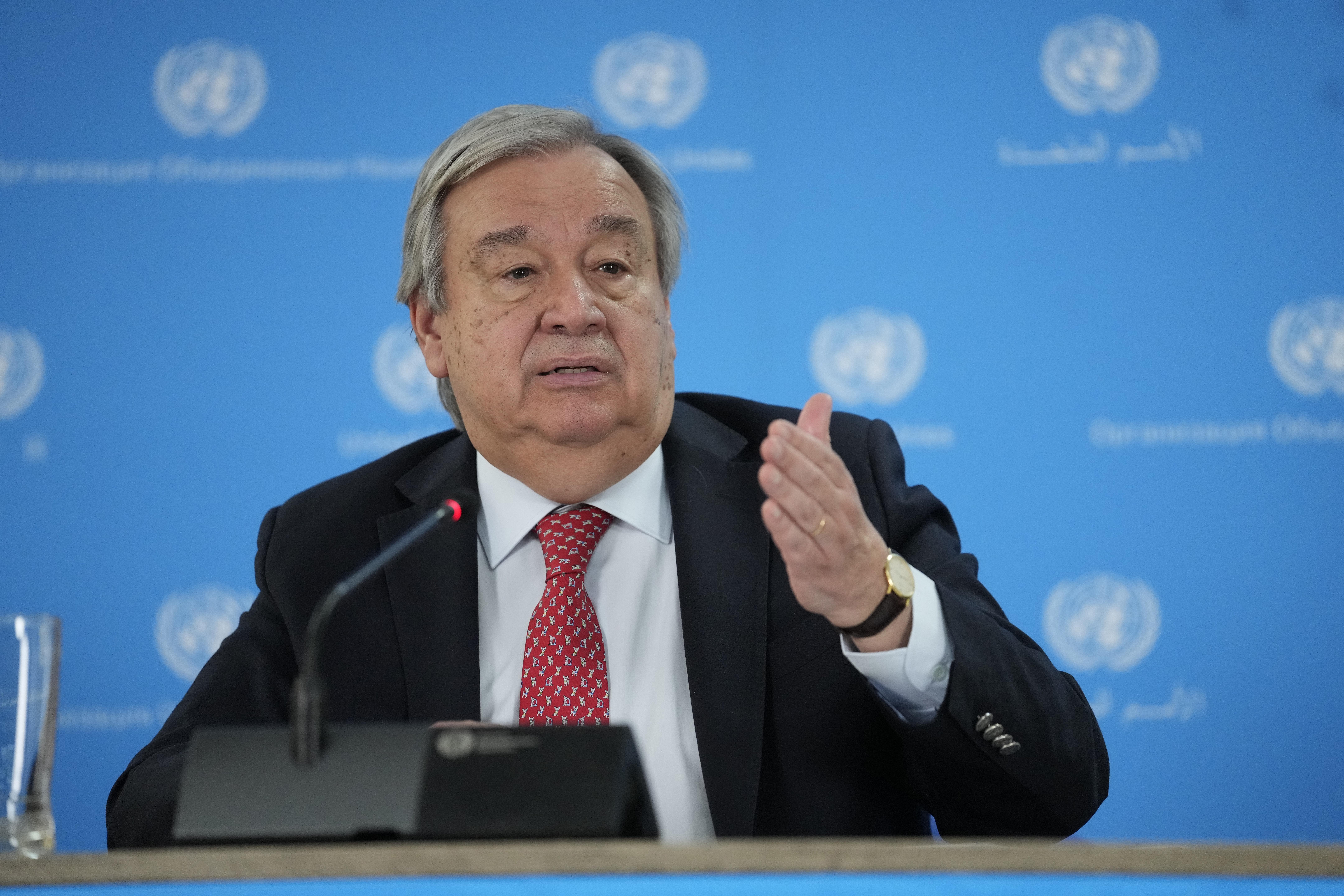 UN Secretary-General Antonio Guterres addresses the media during a visit to the UN office in the capital Nairobi, Kenya, May 3, 2023. (PHOTO / AP)
UN Secretary-General Antonio Guterres addresses the media during a visit to the UN office in the capital Nairobi, Kenya, May 3, 2023. (PHOTO / AP)
UNITED NATIONS – UN Secretary-General Antonio Guterres on Tuesday urged the parties to do their utmost to ensure the continuation of the Black Sea Grain Initiative, which allows the export of Ukrainian grain and other agricultural products from Black Sea ports.
In a statement issued by his spokesperson, Guterres also called on the parties to accelerate operations, pointing to the reduction in the movement of vessels coming in and out of Ukrainian sea ports, and a drop in the supply of essential foodstuffs to global markets.
READ MORE: UN voices concern over Black Sea grain shipments slowdown
This is especially critical now as the new grain harvest begins in both Ukraine and the Russian Federation.
Antonio Guterres, UN Secretary-General
Food exports via the Black Sea have fallen from a peak of 4.2 million metric tonnes in October 2022 to 1.3 million metric tonnes in May, the lowest volume since the grain deal came into operation, according to the statement.
The Black Sea Grain Initiative was signed separately by Russia and Ukraine in Istanbul with Türkiye and the United Nations in July 2022.
The initiative, initially in effect for 120 days, was extended in mid-November 2022 for another 120 days till March 18, 2023. At that point, Russia only agreed to extend the deal for 60 days, till May 18, 2023. On May 17, Russia agreed to extend the deal for another 60 days.
As a parallel agreement, Russia and the United Nations signed a memorandum of understanding on the facilitation of Russian food and fertilizer exports.
ALSO READ: Last ship leaves Ukraine, Black Sea grain deal's fate lies in Russia
The UN chief's statement said that the UN is fully committed to supporting the implementation of both the initiative and the memorandum of understanding, so that exports of food and fertilizers, including ammonia, from Russia and Ukraine reach markets around the world safely and predictably.
"This is especially critical now as the new grain harvest begins in both Ukraine and the Russian Federation," said the statement.


